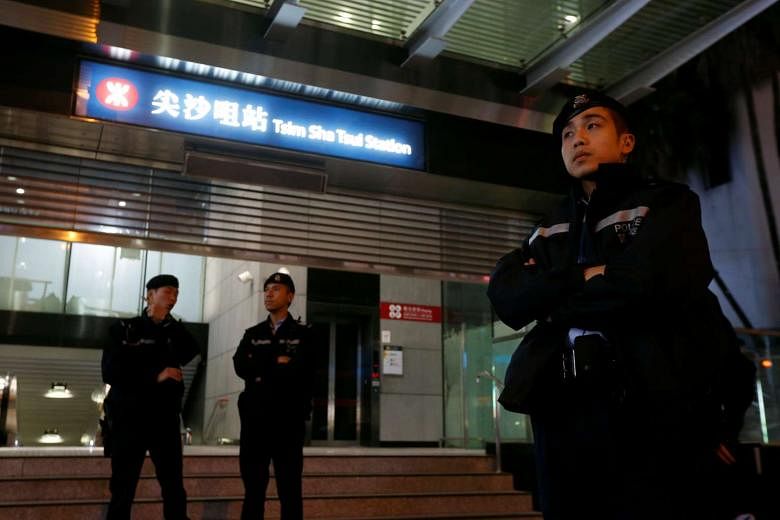HONG KONG - Police in Hong Kong have warned that ISIS-inspired extremists may be in the city planning lone-wolf attacks.
On Wednesday (May 3), they said the danger from militants was real, despite there being no specific intelligence indicating an imminent attack or Hong Kong being targeted, said a report in the South China Morning Post.
The threat level remains at moderate, but anti-terror police in the city are on alert, said the SCMP.
The warning came as security experts urged the authorities to raise public awareness about the threat of global terrorism, so as to recruit more "eyes and ears" across the city.
Superintendent Leung Wing-sheung, from the police operations wing, said terrorist groups such as Islamic State in Iraq and Syria (ISIS) had taken full advantage of the Internet and social media to spread their radical ideology, putting the city in a vulnerable position, said the SCMP.
"Hong Kong is an advanced information city in which people can access promotional materials related to terrorism on the Internet easily," Leung said, adding that anyone could be a potential extremist, not limited by nationality.
"The city also has an enormous international passenger throughput which provides advantages for foreign fighters to enter and hole up here."
She said Hong Kong could be a potential target because it was high-profile home to many global institutions and representatives, but did not go into details about the possibility of militants already in the city, the SCMP reported.
Last year, the United Nations estimated that about 30,000 foreign terrorist fighters, coming from more than 100 member states, were actively engaged in the activities of ISIS, Al-Qaeda and associated groups.
Citing recent deadly attacks in London, Berlin and Niceas examples, police said lone-wolf attacks using pressure cookers and vehicles had become relatively common, SCMP said. This made detection work particularly difficult because those involved often did not have previous links with terrorist groups.
"Unlike the 9/11 attack, which involved a large number of terrorists, materials and financial support, lone wolves act without many plans and associations," Leung was quoted as saying. "You can easily get a truck or a knife anywhere, which makes prevention relatively difficult."
The police vowed to maintain close contact and intelligence exchanges with its counterparts overseas.
Police were also said to be watching out for suspicious individuals and organisations listed by the UN Security Council.
Security consultant and former police superintendent Clement Lai Ka-chi, who helped form the elite Counter Terrorism Response Unit during his time on the force, told the SCMP that public education and community links were crucial, as prevention was key to counterterrorism.
"It is impossible to have officers patrolling every corner, and people should be alerted to report any suspicious person to police. It causes no harm to the force but helps reduce the risk of lone wolves," he said.
"The force is afraid of speaking about terrorism openly as it might cause alarm," Lai added. "How many citizens would study the Security Bureau website to learn what to do in terrorist situations?"

